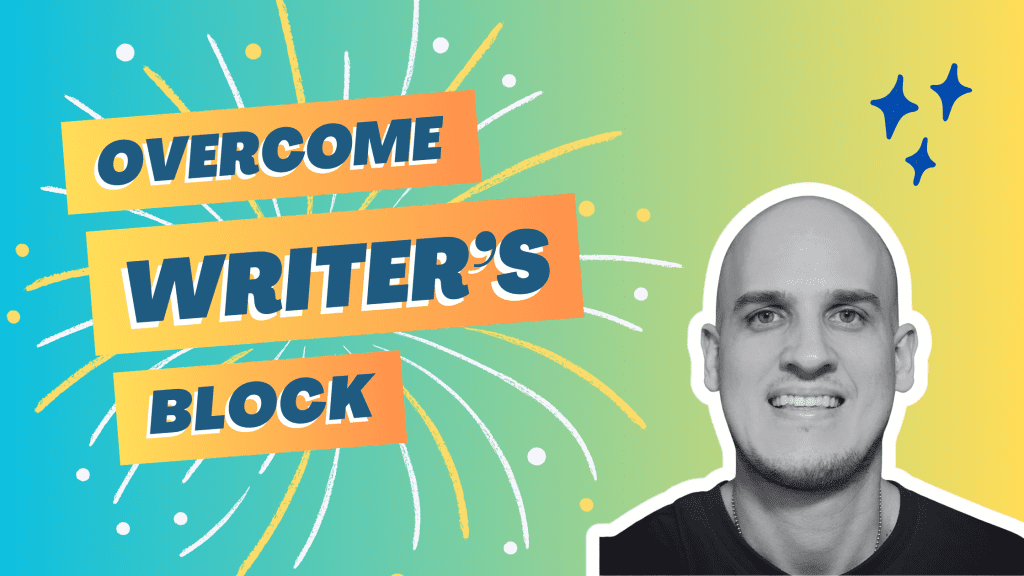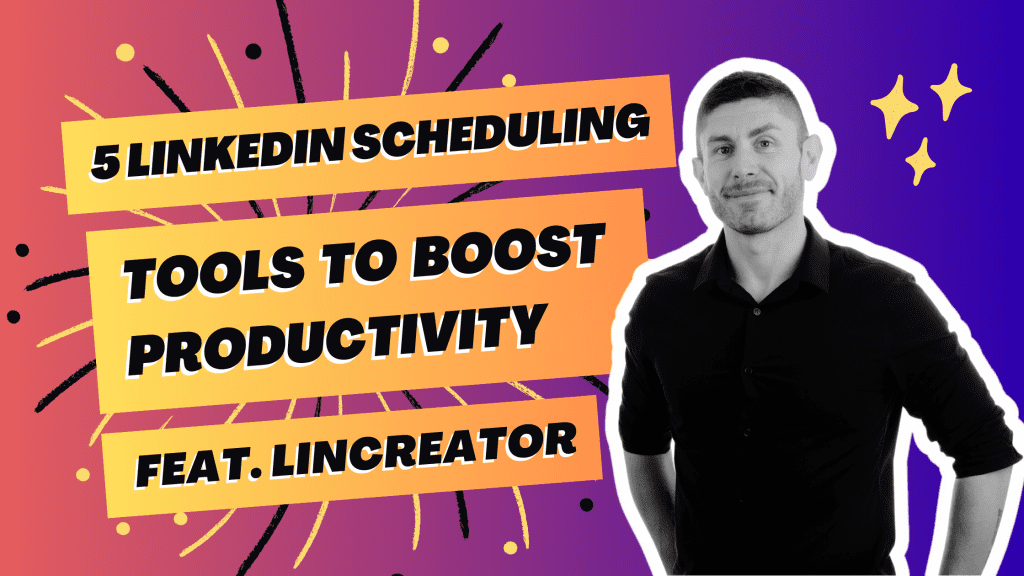Writer’s block is a frustrating phenomenon that plagues many authors, causing a sudden halt in their creative flow. It can feel like a clog in the writing tools, preventing the smooth drafting process. The creative process can sometimes create a mental barrier, making it challenging to generate ideas or put words on the page. Writing tools can help overcome this barrier by providing support during the drafting phase. By tapping into the subconscious, writers can unlock their creativity and find inspiration for their work. The symptoms of writer’s block, a common fear in the creative process, vary from person to person but commonly include feelings of frustration, self-doubt, and a lack of motivation. Writing tools can help overcome this block by providing guidance and support during the drafting stage.
This creative problem can have a significant impact on productivity and hinder the ability to produce quality content. For example, when working on a draft, there may be a problem that arises where something just doesn’t seem to click. This can be frustrating and cause delays in the creative process. Writers may encounter a problem when they find themselves staring at a blank screen for hours, unable to form coherent sentences or develop compelling storylines. For example, they may struggle with writer’s block. Addressing writer’s block is crucial, for example, for overcoming this obstacle and maintaining one’s mental well-being as a writer.
We will delve into practical tips and exercises that can help reignite creativity and get the words flowing again. So if you’re struggling with writer’s block, keep reading to discover ways to break through this barrier and unleash your writing potential.
Identifying the Causes of Writer’s Block
Fear of Failure or Criticism
One major cause of writer’s block is the fear of failure or criticism. When we put our thoughts and ideas onto paper, we open ourselves up to judgment from others. This fear can be paralyzing, making it difficult to even start writing. We worry that our words won’t be good enough or that others will judge us harshly. It’s like having a voice in our head constantly saying, “You’re not good enough.”
Perfectionism and High Self-Expectations
Another factor that hinders the writing process is perfectionism and high self-expectations. We want every sentence to be flawless, every word carefully chosen. While striving for excellence is admirable, it can also become a roadblock to creativity. We get stuck in an endless loop of editing and revising, never feeling satisfied with our work. It’s like trying to hit a home run with every swing instead of just getting on base.
Lack of Inspiration or Creative Ideas
A common cause of writer’s block is the lack of inspiration or creative ideas. Sometimes, we simply don’t know what to write about or where to start. Our minds feel empty, devoid of any imaginative spark. It’s like staring at a blank canvas without a clue about what to paint.
To overcome this hurdle, it can be helpful to try different techniques such as freewriting or brainstorming. These methods encourage us to let go of expectations and allow ideas to flow freely onto paper.
External Distractions and Time Management Issues
External distractions and time management issues can also impede the writing flow. Whether it’s social media notifications pinging on our phones or household chores calling for attention, these distractions steal precious time away from writing. It’s like trying to concentrate on a task while someone repeatedly interrupts you.
To combat this issue, setting aside dedicated writing time and creating a distraction-free environment can be immensely helpful. Turning off notifications, finding a quiet space, and setting specific goals for each writing session can improve focus and productivity.
Overcoming Writing Anxiety
Writing can be a daunting task, and it’s completely normal to feel anxious or overwhelmed at times. There are effective ways to overcome writer’s block and conquer your writing anxiety. Let’s dive into some strategies that can help you unleash your creativity and get those words flowing.
Recognizing and Acknowledging Writing Anxiety
The first step in overcoming writing anxiety is to recognize and acknowledge that it is a common experience for many writers. Understand that feeling nervous or stuck when facing a blank page is perfectly normal. By accepting this fact, you can begin to address the issue head-on.
Implementing Relaxation Techniques
Before diving into a writing session, take a moment to implement relaxation techniques that can help reduce anxiety levels. Deep breathing exercises are an excellent way to calm your mind and body before starting. Close your eyes, take slow, deep breaths, and exhale slowly. This simple practice helps release tension and clears your mind for the creative process.
Breaking Down Writing Tasks
One of the main reasons for feeling overwhelmed while writing is the perception of an enormous task ahead. To alleviate this pressure, break down your writing tasks into smaller, manageable chunks. Instead of focusing on completing an entire article or story in one sitting, set achievable goals by tackling specific sections or paragraphs at a time.
Seeking Support from Fellow Writers
Writing doesn’t have to be a solitary endeavor; seeking support from fellow writers can provide encouragement and motivation during challenging times. Joining writing groups or online communities allows you to connect with like-minded individuals who understand the struggles of overcoming writer’s block. Through sharing experiences and offering support, you’ll realize that you’re not alone in your journey.
Experimenting with Different Strategies
Every writer is unique, so it’s essential to experiment with different strategies until you find what works best for you personally. Some writers find solace in creating detailed outlines before starting their drafts, while others prefer to dive right into the writing process. Explore different techniques, such as freewriting or brainstorming, to discover what ignites your creativity and helps you overcome any fears or anxieties.
Embracing Imperfection
Remember that perfection is not the goal. Embrace imperfection and allow yourself to make mistakes. Writing is a process of growth and improvement, and it’s okay if your first draft isn’t flawless. Give yourself permission to write without judgment or self-criticism, knowing that you can always revise and refine your work later.
By recognizing writing anxiety as a normal experience, implementing relaxation techniques, breaking down tasks into manageable chunks, seeking support from fellow writers, experimenting with different strategies, and embracing imperfection, you can overcome writer’s block and conquer your fears. So grab that pen or open that blank document—your words are waiting to be unleashed!
Enhancing Your Workspace for Creativity
To overcome writer’s block, it’s essential to create a workspace that fosters creativity and minimizes distractions. By optimizing your environment, you can set the stage for productive writing sessions. Here are some tips to enhance your workspace:
Creating a clutter-free environment with minimal distractions in your workspace
A cluttered workspace can be overwhelming and hinder your ability to focus. Clearing away unnecessary items and organizing your desk can help create a clean and inviting space for writing. Keep only the essentials within reach, such as your notebook, pens, and any reference materials you may need. Removing distractions like smartphones or noisy gadgets will help you maintain concentration.
Incorporating elements that inspire creativity, such as artwork or plants
Adding elements that inspire and stimulate creativity can have a positive impact on your writing process. Hang up artwork or posters that resonate with you or display motivational quotes that ignite inspiration. Introducing plants into your workspace not only adds aesthetic appeal but also promotes a sense of calmness and freshness.
Ensuring proper lighting and comfortable seating arrangements for optimal focus
Good lighting is crucial for maintaining focus while writing. Positioning your desk near natural light sources like windows can help reduce eye strain and improve productivity. If natural light is limited, invest in a well-designed desk lamp that provides adequate illumination without causing glare.
Equally important is having comfortable seating arrangements that support good posture during long writing sessions. A chair with proper back support will prevent discomfort and allow you to concentrate on your work without distraction.
Organizing writing materials and resources within easy reach
Having quick access to necessary writing materials is essential when combating writer’s block. Keep pens, highlighters, sticky notes, and any other tools you frequently use nearby so they’re easily accessible when needed.
Consider arranging books or articles related to your topic of interest within arm’s reach as well. This way, if you need to reference something or seek inspiration, you won’t have to interrupt your flow by searching for materials.
Creating an organized and efficient workspace can significantly enhance your writing process. By eliminating distractions, surrounding yourself with inspiring elements, optimizing lighting and seating arrangements, and keeping writing materials within reach, you’ll set the stage for productive and creative writing sessions.
Establishing a Writing Routine and Schedule
Consistency is key. By setting specific daily or weekly goals, you can maintain a regular writing practice that keeps your creative juices flowing. Here are some tips for establishing a writing routine and schedule:
Setting specific goals
To stay motivated and focused, it’s important to set clear and achievable goals for your writing. Whether it’s completing a certain number of pages or finishing a draft by a specific deadline, having tangible targets can help you stay on track. Break down larger goals into smaller, manageable tasks that you can accomplish within a given timeframe.
Allocating dedicated time slots
Finding the right time to sit down and write without distractions is crucial. Identify periods in your day when you can allocate dedicated time slots for uninterrupted writing sessions. It could be early mornings before the hustle and bustle of the day begins, or late nights when everything is quiet. Experiment with different times of day to determine when you feel most productive and inspired.
Using productivity tools
Incorporating productivity tools into your writing routine can help you stay organized and track your progress. Consider using timers or apps that allow you to set specific writing intervals and monitor how much time you spend on each task. These tools can also provide reminders to keep you accountable and motivated.
Embracing trial-and-error
Every writer is unique, so what works for one person may not work for another. Embrace trial-and-error as part of the process in finding the best routine that suits your needs. Don’t be afraid to experiment with different strategies until you find what helps overcome your writer’s block effectively.
Having established a consistent writing routine and schedule, remember that discipline plays an essential role in maintaining momentum. Treat your writing practice like any other commitment in your life – show up regularly, even if inspiration doesn’t strike immediately.
By following these steps, you’ll be well on your way to overcoming writer’s block and unleashing your creativity. Remember, it’s all about finding what works best for you and sticking to it. So, grab that pen or open that document, and start writing!
Utilizing Creative Strategies to Break Through Writer’s Block
Freewriting exercises to generate ideas without judgment or restraint
One effective way to overcome writer’s block is through freewriting exercises. This involves writing continuously for a set amount of time, usually around 10 minutes, without worrying about grammar, punctuation, or coherence. The goal is to let your thoughts flow freely and uncensored onto the page.
During freewriting, you can write about anything that comes to mind related to your topic or even unrelated thoughts that pop into your head. Don’t worry about making sense or having a structured narrative; the key is to keep your pen moving and let the creative juices flow.
Trying out different brainstorming techniques like mind mapping or listing
Another strategy to combat writer’s block is by experimenting with various brainstorming techniques. Mind mapping, for example, involves creating a visual representation of your ideas by connecting them through branches and sub-branches. This technique allows you to explore different angles and connections within your topic.
Listing is another useful method where you jot down all the ideas that come to mind in a simple bullet-point format. This helps you organize your thoughts and provides a starting point for further exploration.
Changing perspectives by exploring alternative viewpoints on the topic at hand
Sometimes, writer’s block stems from feeling stuck in one perspective or approach. To break free from this mental clog, try shifting your viewpoint and exploring alternative perspectives on the topic at hand.
For instance, imagine yourself as someone who disagrees with your own argument or take on the role of an outsider looking in. This exercise can help you see things from a fresh angle and spark new ideas that may have been hidden before.
Engaging in physical activities like walking or exercising to stimulate creativity
Physical activities such as taking a walk or engaging in exercise can do wonders for stimulating creativity. When we move our bodies, it not only increases blood flow to the brain but also helps us relax and clear our minds.
Next time you find yourself struggling with writer’s block, take a break and go for a walk or engage in any form of physical activity. You’ll be surprised at how the act of moving can help unclog your thoughts and get those creative juices flowing again.
By utilizing these creative strategies, you can effectively overcome writer’s block and get back on track with your writing. Remember, there is no one-size-fits-all solution, so feel free to experiment with different techniques until you find what works best for you.
Exploring Resources and Tools for Inspiration
When you’re facing writer’s block, it can feel like your creativity has hit a dead end. There are plenty of resources and tools out there to help reignite your inspiration and get those creative juices flowing again. Let’s explore some of these options:
Reading Books, Articles, or Blogs
One way to overcome writer’s block is by diving into the works of others. By reading books, articles, or blogs related to your writing topic, you can gain fresh insights and perspectives that may spark new ideas. It’s like taking a dip in a pool of knowledge to find inspiration for your own project.
Pros: Reading exposes you to different writing styles and techniques.
Cons: Be cautious not to inadvertently copy someone else’s work.
Listening to Podcasts or Interviews
Another great source of inspiration is listening to podcasts or interviews with successful writers. Hearing their stories and advice can motivate you to push through your own writing challenges. It’s like having a personal conversation with an experienced writer who can provide valuable insights and encouragement.
Pros: Podcasts offer convenience as you can listen while doing other tasks.
Cons: Ensure the podcasts or interviews are relevant to your writing goals.
Utilizing Online Platforms
The internet is a treasure trove of resources for writers. Online platforms such as Pinterest or writing prompt generators can provide a wealth of creative ideas when you’re feeling stuck. These platforms offer visual inspiration, curated content, and thought-provoking prompts that can jumpstart your imagination.
Pros: Online platforms offer endless possibilities for finding inspiration.
Cons: Be mindful not to get too distracted by the vast amount of content available online.
Visiting Local Libraries, Museums, or Nature Spots
Sometimes stepping outside of your usual surroundings can do wonders for overcoming writer’s block. Take a trip to your local library, visit a museum, or spend time in nature to find inspiration. The change of scenery and exposure to different sights, sounds, and experiences can stimulate your creativity.
Pros: Immersing yourself in new environments can spark fresh ideas.
Cons: Ensure you have enough time for this excursion without distractions.
By exploring these resources and tools for inspiration, you can break through the barriers of writer’s block and get back on track with your writing project. Remember to research, search for advice from successful writers, utilize prompts or generators online, and seek inspiration outside of your usual surroundings. Embrace the journey of finding what works best for you in overcoming writer’s block!
Conquering Writer’s Block and Achieving Writing Success
Congratulations! You’ve now learned valuable strategies to conquer writer’s block and unleash your creativity. By identifying the causes of writer’s block, overcoming writing anxiety, enhancing your workspace, establishing a writing routine, and utilizing creative strategies, you’re well on your way to becoming a successful writer.
But remember, conquering writer’s block is an ongoing process. It requires dedication and perseverance. Don’t be discouraged if you still encounter occasional hurdles along the way. Keep experimenting with different techniques until you find what works best for you.
Now it’s time to put these strategies into action! Start by implementing one or two of them in your writing routine today. Remember, practice makes perfect. The more you write and challenge yourself, the easier it will become to overcome writer’s block.
FAQs
How long does it take to overcome writer’s block?
The duration varies from person to person. Overcoming writer’s block is not an overnight process; it takes time and effort. However, by consistently applying the strategies discussed in this blog post, you can start seeing improvements in your writing productivity within a few weeks or months.
Can writer’s block affect professional writers too?
Absolutely! Writer’s block doesn’t discriminate between amateur and professional writers. Even seasoned authors can experience periods of creative stagnation. The key is not to let it discourage you but rather use it as an opportunity for growth and exploration.
Is there a specific strategy that works for everyone?
No single strategy works universally for everyone since every individual has unique preferences and circumstances. Experiment with different techniques discussed in this blog post until you find what resonates with you personally. Remember that overcoming writer’s block is about finding what inspires and motivates you as a writer.
Should I force myself to write during a bout of writer’s block?
It depends on the situation. Sometimes pushing through resistance can help you break through writer’s block, while other times it may be more beneficial to take a break and recharge. Listen to your intuition and give yourself permission to step away from the writing process when needed.
Can reading help overcome writer’s block?
Absolutely! Reading can inspire new ideas, expose you to different writing styles, and reignite your passion for storytelling. Make time for regular reading as part of your writing routine, and you’ll find that it can be a powerful tool in overcoming writer’s block.






































